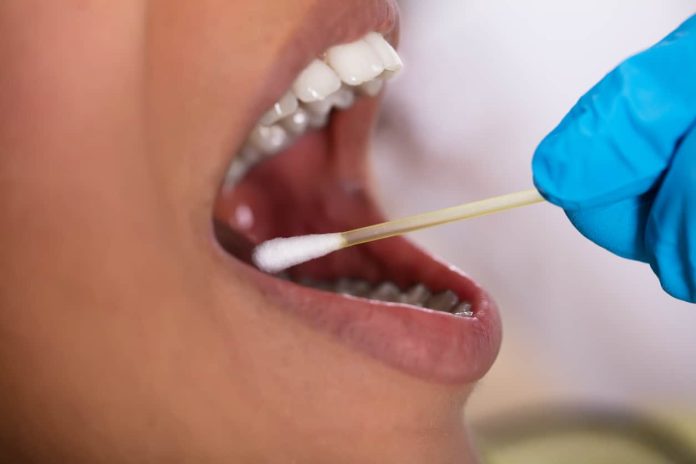Postmenopausal women with periodontal disease are more likely to develop breast cancer than women who do not have the inflammatory gum disease, suggests a new study. The research, published online in the journal Cancer Epidemiology, Biomarkers & Prevention, also found that a history of smoking significantly increases the risk.
Periodontal disease ranges in severity from gum inflammation to damage to the soft tissue and bone that support the teeth and ultimately, loss of teeth. Gum disease has been associated with heart disease, stroke and diabetes. Because previous studies have also linked it to oral, esophageal, head and neck, pancreatic and lung cancers, researchers led by Jo L. Freudenheim, PhD, a distinguished professor of epidemiology at Buffalo’s School of Public Health and Health Professions, wanted to determine if there was a relationship between gum disease and breast cancer.
For their study, Freudenheim and her colleagues followed 73,737 postmenopausal women who were enrolled in the Women’s Health Initiative Observational Study. None of the women had a history of breast cancer at the start of the study. After an average of 6.7 years of follow-up, 2,124 of the participants were diagnosed with breast cancer.
Findings showed that overall, women with periodontal disease were at a 14 percent higher risk for breast cancer than those who did not have it.. Among those who had quit smoking within the last 20 years, there was a 36 percent increased risk for breast cancer if they had periodontal disease.
Women who currently smoked and had gum disease had a 32 percent higher risk for breast cancer, but the association was not statistically significant because so few of the women in the study still smoked. Women who never smoked and who those who had stopped smoking more than 20 years ago had a 6 percent and 8 percent greater risk, respectively, if they had periodontal disease.
“We know that the bacteria in the mouths of current and former smokers who quit recently are different from those in the mouths of non-smokers,” Freudenheim said in a news release. “One possible explanation for the link between periodontal disease and breast cancer is that those bacteria enter the body’s circulation and ultimately affect breast tissue,” she added.
However, Freudenheim acknowledged that the study only shows an association between gum disease and breast cancer and that more research is needed to establish a causal effect.
“There is much to learn about why we see these associations,” Freudenheim told HealthDay. “In particular, we don’t know yet if treating the gum disease would decrease risk of these other diseases.”
Stephanie Bernik, MD, chief of surgical oncology at Lenox Hill Hospital in New York City, agreed that the study did not prove a direct link between periodontal disease and breast cancer. “Women with gum disease may lead lives that are less healthy overall, such as eating poorly, not exercising and drinking excessively,” she noted.
Still, Ashish Sahasra, DMD, an orthodontist in Garden City, NY, told HealthDay that the study is “going to open a lot of people’s eyes to the potential link between gum disease and breast cancer.” He added, “Gum disease is very common, and sometimes it goes undiagnosed or misdiagnosed and many people don’t pay attention to it, but it’s a serious disease that needs to be treated immediately.”








